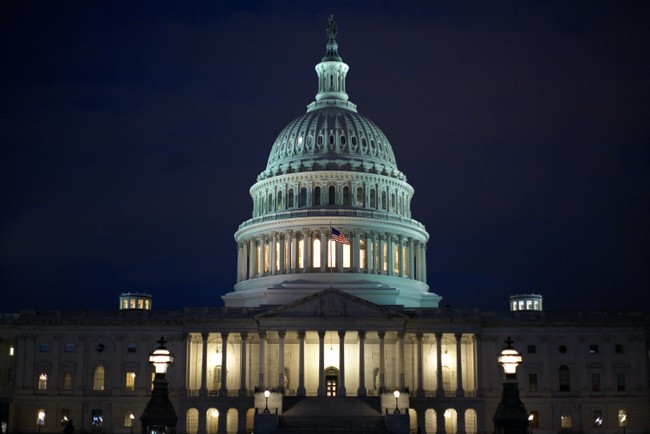During the past 42 years, the federal government has been divided for 30 of them. Over the past three presidencies, the president's party lost at least one house after only two years. The instinct of the American public is to split power. The organic state of a divided nation is glorious gridlock -- which is why the 10th Amendment exists. Now, it's also true that leftists struggle with the notion of letting people in red states think, speak and live in ways they dislike. There is a national political and cultural effort to homogenize us. And when Republicans appropriate the existing local power Democrats have used for decades to implement their own choices -- as Gov. Ron DeSantis has done in Florida -- leftists act as if we're on the precipice of a dictatorship. But they have no power to stop him. Only Florida voters do. This is why federalism exists. It is why some states thrive and others don't. And federalism is not only a more desirable solution than breaking the country into two, but also far more feasible.
None of this is to argue there aren't serious problems facing the nation, but Big Tech's relentless highlighting of every decisive moment, every rabid voice and every radical position clouds our view of reality. The nastier and crazier you pretend to be, the more misleading your tweets and the more partisan you act, the more followers you can expect. The incentive of social media success is corrosive. Most of it just exacerbates political divisions.
In the real world, you probably live in proximity to plenty of people with different religious, cultural and ideological values, yet, despite what you've heard, we're a nation with negligible political violence. In many ways, despite the mess politicians have made, our lives are better than ever. Let's keep it that way.
David Harsanyi is a senior editor at The Federalist. Harsanyi is a nationally syndicated columnist and author of five books -- the most recent, "Eurotrash: Why America Must Reject the Failed Ideas of a Dying Continent." His work has appeared in National Review, the Wall Street Journal, Washington Post, Reason, New York Post and numerous other publications. Follow him on Twitter @davidharsanyi.
None of this is to argue there aren't serious problems facing the nation, but Big Tech's relentless highlighting of every decisive moment, every rabid voice and every radical position clouds our view of reality. The nastier and crazier you pretend to be, the more misleading your tweets and the more partisan you act, the more followers you can expect. The incentive of social media success is corrosive. Most of it just exacerbates political divisions.
In the real world, you probably live in proximity to plenty of people with different religious, cultural and ideological values, yet, despite what you've heard, we're a nation with negligible political violence. In many ways, despite the mess politicians have made, our lives are better than ever. Let's keep it that way.
David Harsanyi is a senior editor at The Federalist. Harsanyi is a nationally syndicated columnist and author of five books -- the most recent, "Eurotrash: Why America Must Reject the Failed Ideas of a Dying Continent." His work has appeared in National Review, the Wall Street Journal, Washington Post, Reason, New York Post and numerous other publications. Follow him on Twitter @davidharsanyi.

